«Here [Algarve] calamities continue, (…) the immense rain and gales paralyze all movements, and hunger grows» (Journal «A Patria», January 27, 1856).
Over the last few weeks, we have remembered the terrible catastrophes that befell the Algarve between July 1855 and May 1856, namely the scourge of cholera and the thousands of deaths resulting from it, as well as the earthquake of 12 January and the damage supervened materials.
However, there was yet another calamity, a phenomenon also rare, like the earthquake, with equally dramatic consequences.
Let us return to the parish priest of São Bartolomeu de Messines and to the «Memoria» that he wrote about the year «memorable in everything», which we have already mentioned here, to add the last adversity: «due to the many rains since the night of the 26th of August [1855] , which will cause almost all the crops of this Province to be lost». The unforeseen precipitation started in August and never stopped in the following months.
On October 13, the civil governor António Couceiro sent a circular to the municipalities, informing that he had informed the government of the “sad state in which this district finds itself, due to the scarcity of crops, and of all branches of its agricultural products”. , suggesting the creation of a home for orphans and underprivileged children.
Thus, it sought to support those destitute of the epidemic and food shortages, motivated by the agricultural crisis.
The Municipality of Lagos, aware of the problem, suggested that, "in the launch of this year's direct distribution contribution, the funds corresponding to the income of the vineyards of that Municipality should be deducted, and that it be granted a moratorium until the next harvest of the fig, for half of the payment of the other contributions", given the "almost no production of the vines, as well as the damage of the fig harvest". Letter sent by the civil governor to the Ministry of Finance, on October 26, 1855, attesting to the generalized situation throughout the province, which he had visited in the meantime.
A few days later, it was the City Council of Tavira that requested that the «payment of the property tax» be reduced, due to the «fatal result (…) in all harvests in the District». Representation that the governor forwarded on 3 November to the Ministry of the Kingdom.
Meanwhile, the rains did not stop, as a corollary, the Albufeira Chamber saw, in January 1856, the taking of office of the new council postponed. Scheduled for the 2nd, it only took place on the 13th of that month, «due to the heavy rain» that made it impossible for the councilors to travel to the county seat.
At that time, the parish priest of Loulé, Rafael Pinto, wrote: «from the beginning of September until the end of last December, the rains had fallen with little interruption, but then they were so abundant and continuous, that the springs increased to an extraordinary point. and others appeared again».
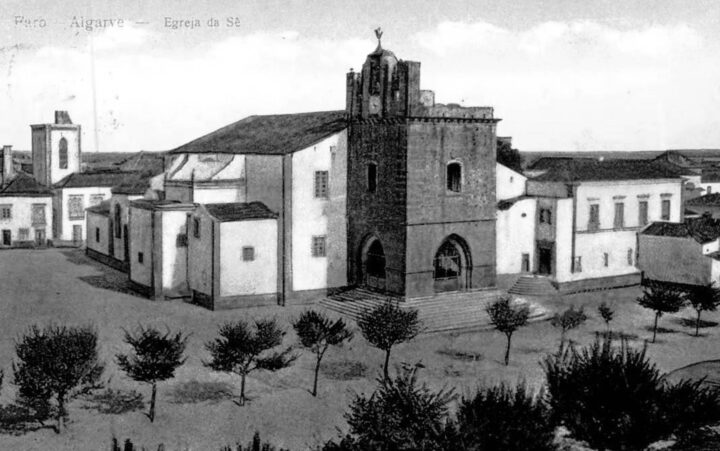
The newspaper «O Braz Tisana» inserted a news of Faro, dated January 24, in which the correspondent says: «everything is gloomy and sad, in the house darkness, humidity and even rain because even in the bed it is necessary to put some roofs to stop the water that has passed through the best roofs».
Two days later, on 26 January, the civil governor gave the Ministry of the Kingdom a dramatic description of the district: “because of the storms that have been happening since last August, the lack of harvests, lack of work, and the damage caused by Cholera ».
Thus, «the men of the sea cannot give themselves to the navigation because it is almost completely stopped. Fishermen cannot leave the bars because the rising of the seas does not allow them. The field workers don't have to do it because mainly the lower Algarve is transformed into a lake».
The Algarve was submerged and paralyzed, with no means of communication, no supplies, not even firewood, charcoal or basic foodstuffs.
After all, «the roads and paths are not known, and even when the rains stop for a long time they will be impassable by the ravines that the overflowing streams have opened; and the bridges have some the alluded arches, others the curtains and the pavement ripped off; this is mainly the important and indispensable Quarteira Bridge».
As if that were not enough, the houses collapsed in the face of such a severe winter: «many adobe and mud houses inhabited by less wealthy people have collapsed, mainly in Cacella, Tavira and Olhão by the copious rains and in Loulé by the earthquake of the day 12 of this month».
To which the governor appealed: «from what I have said, Your Excellency will judge. of the sadness in which this whole District finds itself, and of the misery to which the indigent class is exposed».
He then listed the measures he had taken, such as the creation of Relief Commissions, in almost all municipalities, which collected pecuniary funds from wealthy families.
However, «in this district there are very few rich houses, and therefore the assistance provided by these Commissions is neither sufficient nor can it be repeated». Faced with the escalation of the agricultural, health, economic and social crisis, he requested extraordinary measures, among them: "to have some mills of corn available to me, which is the main food for the poor people of this Province, as well as some mills of beans, and money, that with those groceries already, maybe a credit of up to 500$000 r is enough. and being only twice as much money; By this I mean that the misery, if not hunger, of the indigent class will be remedied”.
António Couceiro also proposed long-term measures, such as the creation of stamp customs, the construction of the road from Vila Real to Lagos, which should reduce the «species of emigration that appear outside the Kingdom, as has now gone to the Square of Gibraltar».
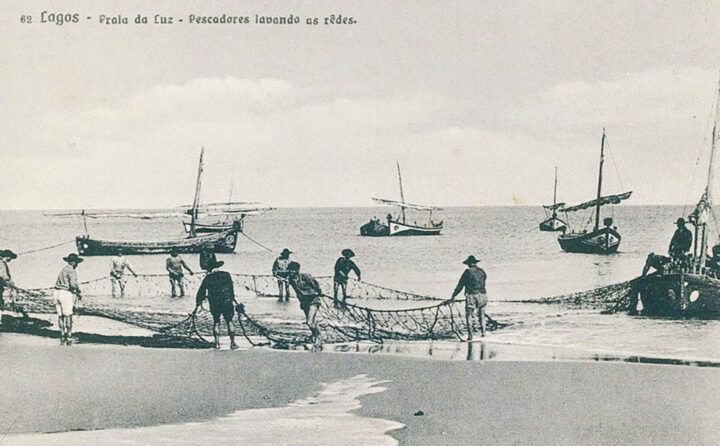
The situation was sinister, the perfect storm, as we would say today, a region completely blocked by persistent rain, the epidemic and the earthquake: «calamities that will aggravate the general misfortune».
With no wealthy classes and no reservations, hunger and death reached practically every Algarve home.
In Quarteira, according to the minutes of 23 January 1856 of the Câmara de Loulé, the «people who live only from fishing, and cannot now exercise this way of life as a result of the bad weather, suffered horrific hunger: that the mortality in these last days had there been greater, than the ordinary; and that one of the causes that, without a doubt, contributed to this end, was the misery that reminded the need to help those unfortunate ones”.
As a result, the city council decided to provide a daily ration of maize and rice to the sick during bad weather.
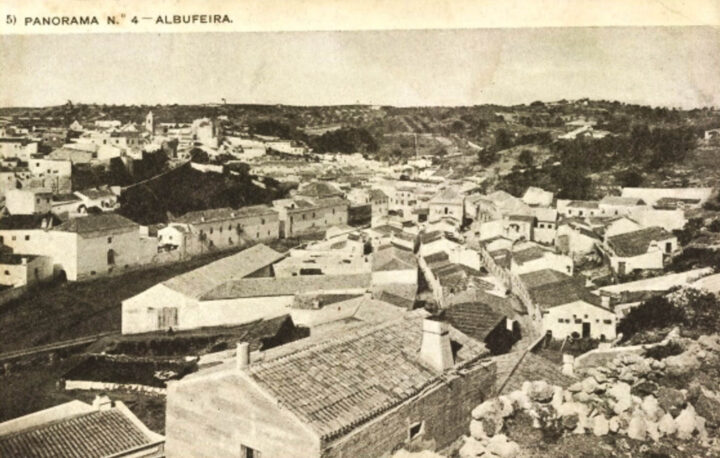
In Lisbon, the Algarve was mobilizing to try to alleviate the situation. The «Jornal do Commercio», in its January 26 edition, included a description of the «painful state» of the region, in which it was mentioned that «two thirds of the population of the Algarve, composed of artists, fishermen, seafarers and day laborers, find to beg, because hunger forces them to do so».
He then called on the «Algarvians» residing in the capital to participate in the election of a relief commission, with the aim of raising funds for the orphans and those most in need.
The constant floods led the rivers to invade the banks, causing damage, as in Vila Real de Santo António, Silves, or Tavira.
In this last city, the water entered the buildings and «up almost to the two floors of the first floors». In addition to the damage caused by the earthquake, which was felt there with intensity, «not a day goes by that 6 and 7 buildings do not collapse», due to the immense rain. When in hail, as in Vila Real and Olhão, that one broke the glass and the tiles.
In February, the City Council of Tavira demanded the construction of the main road, towards Vila Real and Olhão, a request that the governor soon sent to the Ministry of Public Works.
The works were intended to provide subsistence to workers and workers of the humblest classes.
On the other hand, it was impossible to travel by land and sea, the mail was not collected or distributed and, when possible, couriers from 'Tavira to Olhão and Faro, and vice versa, take 10 and 11 hours to travel 4 to 5 leagues from the royal road.
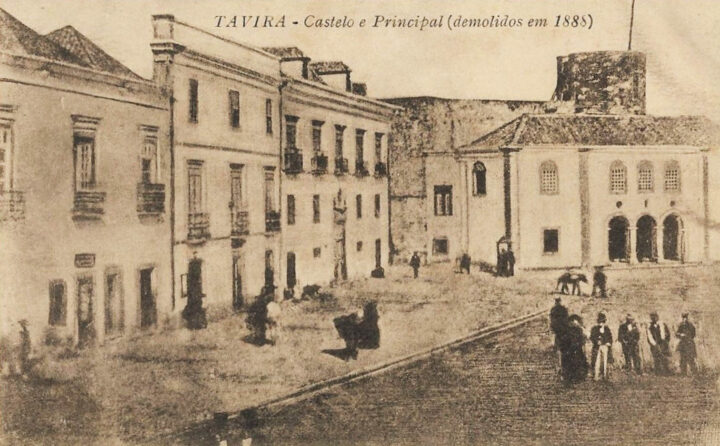
Overall, the situation worsened. To the Ministry of the Kingdom, António Couceiro listed the specificity of Cacela, in the municipality of Vila Real, as the most martyred at that time, «not only because of the collapse of most of the mud and adobe houses, but also because the residents of them are with rare exceptions, fishermen who have not been able to cast their nets into the sea because of the fierce five-month gale».
The «Jornal do Commercio», on 26 January, listed the collapse of 160 dwellings there «with the great force of the water pitch».
It is true that the governor had promoted the collection of pecuniary funds from the villagers, to «rescue those indigents», but the funds had run out, and the governor himself decided to proceed with the acquisition of corn, from the country or Spain, in the amount of 50$000 reis, for distribution «to the truly indigent individuals and especially the fishermen of the two parishes of Cacella and V.ª R.ªl».
Despite this reality, that magistrate congratulated himself on the maintenance of public and private security, «despite so much misery and hunger (…) will to his alms, so are the Algarvians».
It wasn't until the end of May that the rain stopped, but not the problems. It is true that little by little the land dried up, but there was one exception – Lagoa: «the immense rains (…) will form so many and such extensive swamps around Villa de Lagôa that hydraulic works are necessary for their depletion».
The situation was worsened by the fact that most of the ditches were obstructed, and it was not unprecedented, as it had already happened in 1820.
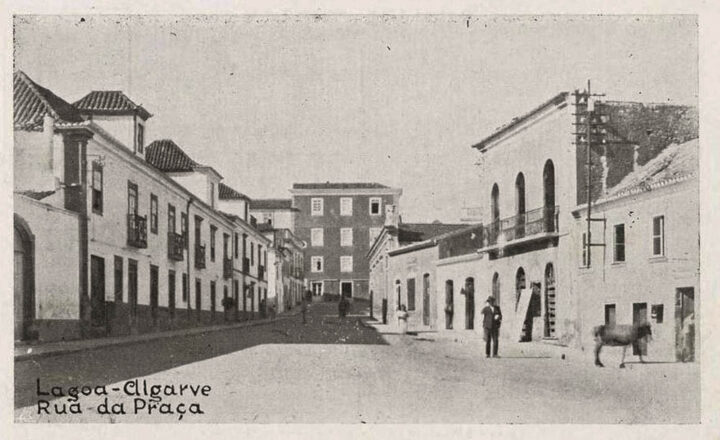
The consequences were not long in coming, in agricultural terms (with the flooding of properties and roads in the municipalities of Lagoa and Silves) and mainly in terms of public health.
After all, it was "rare the inhabitant of that Villa and its surroundings to have a regular health, and a large number of those who have died in recent times, victims of sepsis, maligns, and other pernicious fevers". Couceiro therefore reiterated, on 27 May, the request for urgent measures to the Ministries of Public Works and the Kingdom.
By July, the harvest season, there was nothing to harvest. Sowing was either not done or flooded, in short, everything was lost.
The Algarve, which has always had a cereal deficit, never producing what it consumed, found itself in a distressing situation.
At the beginning of that month, the governor, given the «excessive shortage of all foodstuffs and the very scarce harvest of them» and «seeing the excessively high price of all», the notorious inflation, asked all the administrators of the councils to estimate the production of wheat, barley, rye, quantities in reserve, locations where they used to be supplied, the appearance of sowing maize, vegetables, potatoes and the like, as well as food needs and the means to be used to satisfy them.
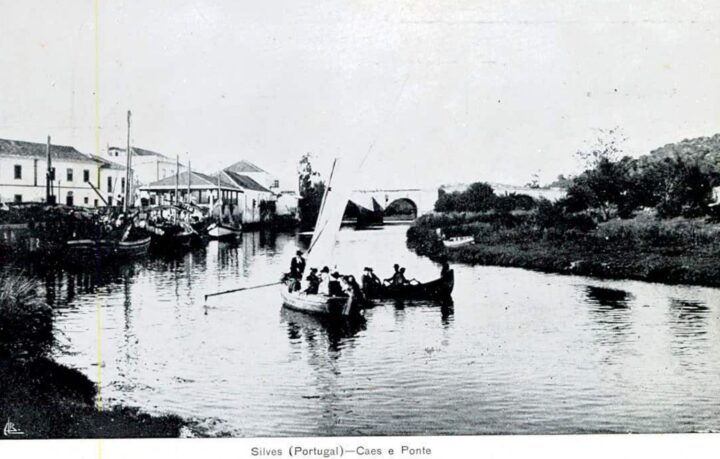
In Silves, the council, parish priests and other personalities were unanimous in recognizing, on 19 July, «the never-before-seen scarcity of this year's harvest and the small reserve of cereals from the previous harvest, and the need to adopt means of satisfying subsistence until the harvest of the coming year'. If the sowing of irrigated maize and beans was promising, “irrigated maize, vegetables, potatoes, fava beans and carob are terrible”.
A situation identical to most, if not all, municipalities. In Faro, the City Council, meeting on the same day, recognized the enormous lack of cereals, for food and sowing, and noted that the basis of the regional economy, «the fig promises something, but it is already starting to fall, and a lot», in addition to being subject to other eventualities until harvest.
Shortly after, the government determined the pardon of the tax of the national Tuesdays, which had to be used in diverse municipal improvements, to give work to the humble classes.
Other public works were also advancing, such as the coastal road (the grandmother of the EN125), in which 30$000 reis were invested, to which 000$10 reis were added for the continuation of the Lisbon road, through Loulé.
Works that began in the first, in October 1856, while in Loulé, these were already underway, employing «a large number of workers, men, women and children». Other times, when there were no rights, but only duties, to escape death, hunger and misery.
However, the food crisis was far from normalizing: on November 18, 1856, the governor referred to the Ministry of Public Works the concerns of the Chamber of Deputies. Faro, “regarding the lack of foodstuffs, mainly wheat: this kind is becoming scarce and progressively lacking as a result of the high price it has on the African markets, and the restrictive measures adopted in the Empire of Morocco”.
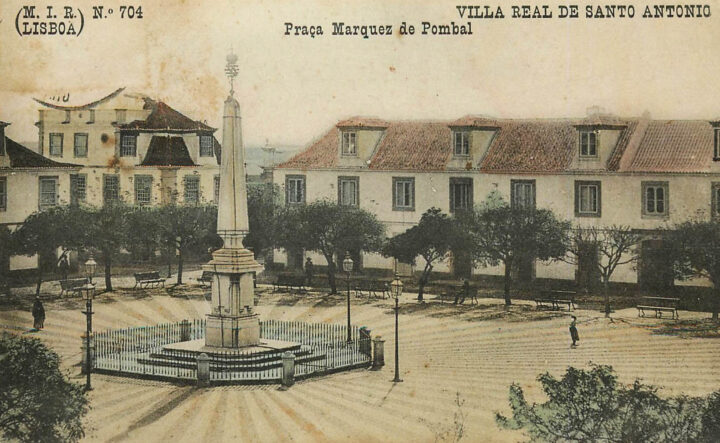
Given the maritime instability, transport was difficult and what arrived at the ports of Tavira and Olhão was quickly exhausted «by the people of the Algarve and Alentejo mountains and not enough to supply the respective villages», to which Couceiro begged the shipment of wheat from Lisbon.
With little state aid (this only arrived with Democracy and the social state) across the country, several subscriptions were opened in « favor of the needy in the Algarve », so that, in June 1857, the governor was still distributing it, « sending to the Charities of Tavira, Lagos, Portimão, Silves, Loulé and Albufeira, the sum of 50$000 Rs. to each one, to distribute to the Parishes that I consider most in need».
The atypical winter had passed, but the problems arising from the cholera, the earthquake and the "flood" would persist for several long years.
On June 4, 1857, that magistrate still reiterated the urgency of intervention in the ditches near Lagoa, to drain the waters that remained there.
On the 22nd of July of the following year, he insisted with the Ministry of Public Works for the works to be carried out on the Quarteira (Barão) bridge, authorized since March 1855, otherwise it would collapse completely.
At a time when everything was slow and the State only served to collect taxes, the works were driven by the private initiative (with the lowest possible public contribution).
In a region where the wealthy classes were few (or were it not for the absence of elites one of the biggest problems in the Algarve), and not always endowed with altruism, everything was postponed.
It should be noted that that different winter was common to Southern Europe, with the aggravating factor that in the Algarve it coincided with the epidemic (the lack of food was certainly not unrelated to such high mortality) and the earthquake.
The terrible situation experienced by our ancestors reminds us that, despite all the constraints of today, the Algarve is today a prosperous region, endowed with decent housing, as well as road and public health infrastructure, with less social inequalities and more wealth. .
Even with climate change, extreme phenomena, such as the one mentioned here, or the drought we are experiencing, become more frequent and disastrous.
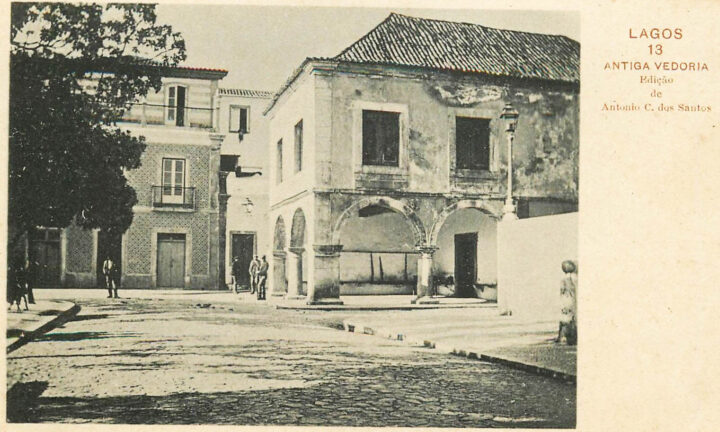
If almost everything has changed in our days, two situations have not lost their relevance. From the outset, the importance of diversifying economic activities, agriculture and fishing in the past were replaced by tourism, which is today the economic engine, however, in the event of an earthquake, for example, and it can occur at any time, or of an oil spill, or even of climatically atypical summers, the regional economy will collapse and the Algarve will be in need of help and support, as it has always been throughout its history.
After all, when in the Chamber of Deputies, on March 4, 1856, some parliamentarians defended the postponement of support for the region, in order to face the horrendous crisis, José Estêvão, who was neither an Algarvean nor a deputy for the region's circles, like himself he recognized, said, moved by the sentiments of «justice and truth», that: «the Algarve, should not ask, but rather accuse the public powers of this country, because being a few leagues away from the capital, it lived as abandoned and forgotten as a of our most remote possessions". More than 166 years later, much of that intervention is as current as it was then.
Despite other vicissitudes of bad memory, the region did not experience, simultaneously, a triad (pandemic, earthquake and «flood») as dreadful and catastrophic as the one experienced in 1855-56.
Author Aurélio Nuno Cabrita is an environmental engineer and researcher of local and regional history, as well as a regular collaborator of the Sul Informação.
Note: In the transcripts, the spelling of the time was preserved. The images are merely illustrative and correspond to illustrated postcards from the first half of the XNUMXth century.
Click here to read the first article in this series
Click here to read the second article in this series
Click here to read the third article in this series
Click here to read the fourth article in this series
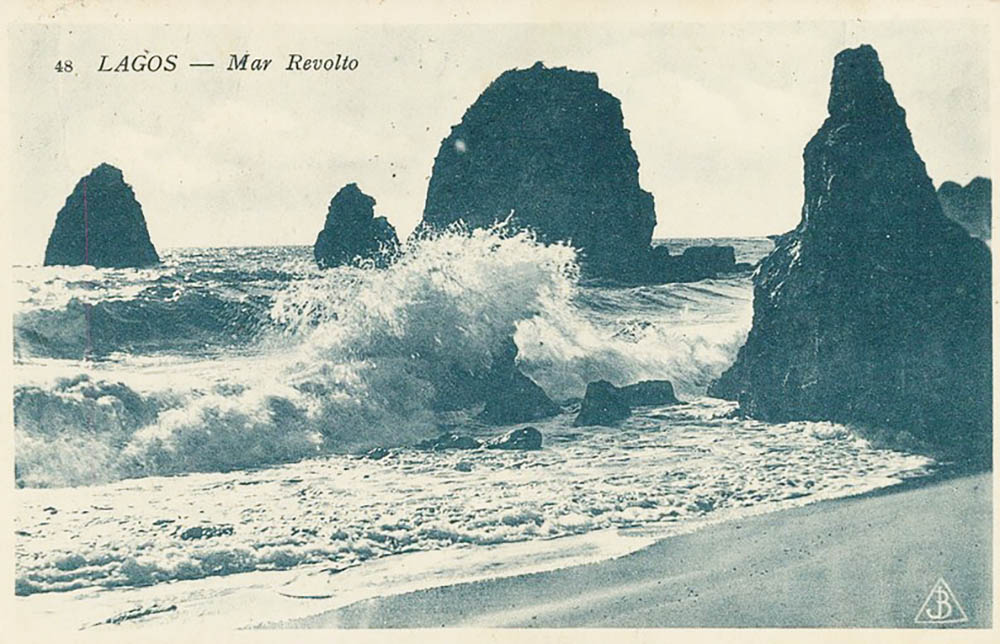



















Comments